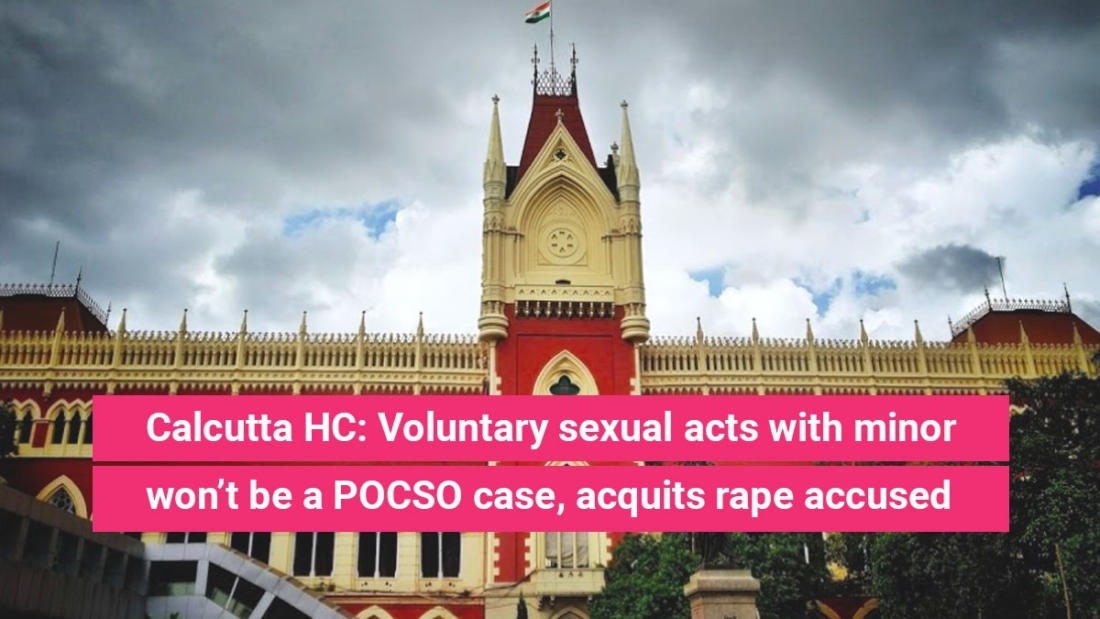In the matter Ranjit Rajbanshi Vs. The State of West Bengal & others, the Calcutta High Court on 17.09.2021 observed that “If the union is participatory in nature, there is no reason to indict only the male just because of the peculiar nature of anatomy of the sexual organs of different genders.”
The appellant (Ranjit Rajbanshi) was convicted under Section 376(1) of the Indian Penal Code, 1860 (“IPC”) and under Section 4 of the Protection of Children from Sexual Offences Act, 2012 (hereinafter referred to as “the POCSO Act”) and sentenced to suffer rigorous imprisonment for seven years and fine of Rs. 50,000/-.
At the time of filing the First Information Report (FIR); the age of the accused was 22 years and that of the victim was 16 ½ (a minor). In the appeal to the High Court, the contentions of both the parties are as follows: –
The accused highlighted that the two Doctors’ reports do not corroborate with the prosecution case. The victim had admitted her prior relationship with the accused. Moreover, no instance of rape was alleged by the victim during medical examination and the pregnancy test has also yielded negative result.
The State contended that the victim was proved to be a minor at the time of the offence and, even if the victim had consented to the offence, the same is not material at all.
The High Court observed that:
- The victim had admitted to one of the doctors that she had a prior relationship with the accused/appellant and that her mother had also admitted to a previous relationship between the two of them.
- Justice Bhattacharyya noted that reports from two doctors who examined the victim did not corroborate her allegations of rape. He also ruled out use of force on the victim, noting that her medical examination did not reveal any “external injury” on her.
- According to the victim, her mother called the accused on the day of the incident and asked him to marry her. “It might very well have been that the complaint was lodged merely to create pressure on the accused to marry the victim, despite the serious crime of rape having been allegedly committed upon her.”
- According to the High Court, the fact that the victim’s family met the accused with a marriage proposal was not compatible with allegations of rape. Justice Bhattacharyya remarked that the provisions of the POCSO Act should be given an appropriate construction, for the protection of children and not as a tool of abuse to compel a person to marry another.
- According to the definition of a ‘child’ under the POCSO Act, “even a person who is aged 17 years and 364 days would qualify as a child, but her maturity would not be much different from another person, who was just one day older than her, that is, 18 years old”.
- A statute cannot be interpreted with “eyes closed to practical realities and have to be construed in proper perspective”. Age, maturity, and other factors also need to be considered while examining an allegation of penetrative sexual assault under POCSO. In the present case, the previous relation between the victim and the accused and their physical union on several occasions raise a strong presumption of the alleged incriminating act being participatory at both ends, not a unilateral act of the accused.
- Even though a minor’s consent is not considered valid under Indian law, the fact that a sexual act was committed against the will of the victim had to be established to convict an accused under Section 376(1) of the Indian Penal Code (rape). An accused cannot be incriminated under Section 376 or the POCSO Act for a voluntary sexual act.
The Calcutta High Court concluded that the conviction was based on “an erroneous interpretation of the provisions of the POCSO Act as well as the IPC” and therefore, acquitted the accused since there were “several contradictions as well as the existence of several missing links in the chain of events.”
– Vaishali Jain, Advocate & Associate – Child Safety at Work
 Cart is empty
Cart is empty 

